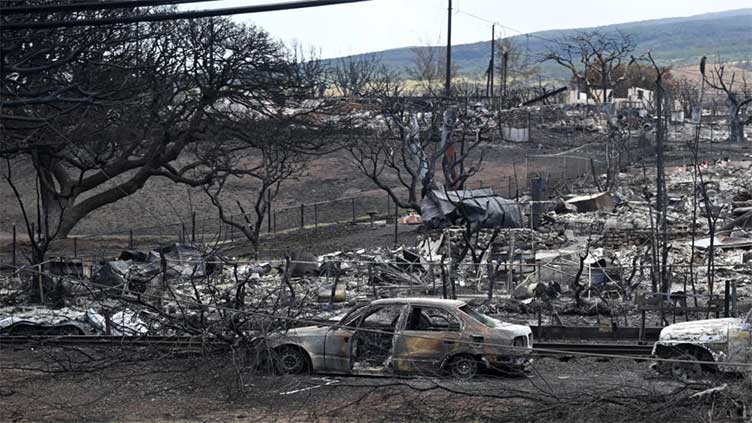At least 1,100 missing after Hawaii fires as FBI seeks help in identifying dead

World
The fires were the deadliest to hit the United States in a century, claiming at least 115 lives
(AFP) – At least 1,100 people are still missing two weeks after deadly wildfires ravaged the Hawaiian island of Maui, authorities said Tuesday, with the FBI seeking family members' help in identifying the remains of the dead.
The fires were the deadliest to hit the United States in a century, claiming at least 115 lives, according to the latest provisional death toll.
The tourist town of Lahaina, home to 12,000 people, was all but wiped off the map, with thousands of missing persons appearing on lists maintained by various organizations, including the police, Red Cross and shelters.
The Federal Bureau of Investigation (FBI) is now working to collate and verify the data, Special Agent Steven Merrill told reporters on Tuesday.
"We're cross-referencing all the lists so that we can determine who in fact truly is still unaccounted for," Merrill said.
As of Tuesday, the FBI had counted 1,100 missing persons, he added, with the number likely to rise.
The FBI has set up a dedicated telephone hotline and has encouraged relatives of the missing to contact them.
"We really need the public's help", said Merrill, particularly in terms of getting additional information to verify details for some of the missing.
Maui police chief John Pelletier said authorities were refining the data and were hoping to publish a verified list of missing persons "in the next few days".
FBI agents have also been collecting DNA samples from the families of the missing who are unable to travel to Maui, wherever in the world they may be.
Identifying the unrecognizable bodies found in the ashes of Lahaina is a laborious task.
So far, only 27 of the 115 victims have been identified.
Having the DNA of the families of the missing "is a critical step in order to make an identification" of the victims, said Julie French, vice president of ANDE, the company in charge of these operations.
"Nearly three-quarters of remains that have been tested for DNA thus far have generated searchable DNA results," she said.
But without DNA from relatives against which to compare this data, the process is futile.
Only 104 DNA samples from family members of the missing or dead have been collected so far, and the authorities were keen to dispel any distrust of the process.
"The DNA profiles are not being retained by the FBI" or the police, said Maui County District Attorney Andrew Martin.
"The only purpose for which it will be used is helping identify the unaccounted for."

